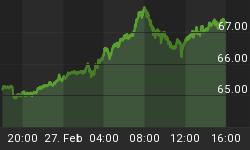The US government is stepping up efforts to break China’s dominance over supplies of critical minerals for a range of modern life’s aspects, including electric vehicles (EVs), green technologies and military applications by launching a plan to boost lithium, cobalt and rare earths mining across the globe.
The Energy Resource Governance Initiative (ERGI) initiative, announced in June, so far involves Australia, Botswana, Peru, Argentina, Brazil, Democratic Republic of the Congo, Namibia, the Philippines and Zambia.
The scheme seeks to promote responsible mining of 15 minerals expected to be in high demand as the adoption of technologies such as EVs, battery storage and wind turbines continue to rise.
“We want to ensure that these important mineral commodities remain free from international coercion and control,” US secretary of state, Mike Pompeo, said in a meeting held on Thursday at the United Nations General Assembly.
“The work that we’re doing here is absolutely essential – it’s essential to ensuring secure and reliable energy supplies for every nation,” he noted.
Pompeo said the Trump administration will also work on bilateral agreements, such as the one it recently signed with Canada, aimed at strengthening cooperation on critical minerals.
Washington has also gained the support of Australia, which has committed to facilitate potential joint ventures to improve rare earth processing capacity and reduce reliance on Chinese rare earths. Related: Lack Of Funding Could Lead To Battery Metal Supply Shortage
In early September, Canberra identified 15 rare earth and critical mineral projects it aims to champion as part of the joint effort with the US to challenge China’s dominance in the market.
The announcement followed a move by Australia’s Lynas Corp., (ASX: LYC), the world’s largest rare earths miner outside China. In July, the company signed a deal with its partner, Texas-based Blue Line, to build a heavy rare earths separation facility in the US. The facility should begin operations by 2021.
The US has also signed a memorandum of understanding to assist Greenland in the exploration and development of the island’s resources — in particular, its rare earth minerals.
Washington has grown more concerned recently about its dependence on mineral imports after Beijing suggested using them as leverage in the trade war between the world’s two largest economies.
Growing supremacy
China accounts for almost 80% of the global mined supply of rare earths, a group of 17 chemical elements used in everything from hi-tech consumer electronics to military equipment.
The nation has used its rare earths dominance to make a political point in the past. It blocked exports to Japan after a maritime dispute in 2010, though the consequent spike in prices triggered a race to secure supplies elsewhere.
Beijing has also been securing supplies of other critical minerals and battery metals such as lithium, cobalt and nickel, buying up stakes in mining projects in countries from Australia to South America and Greenland.
By Mining.com
















